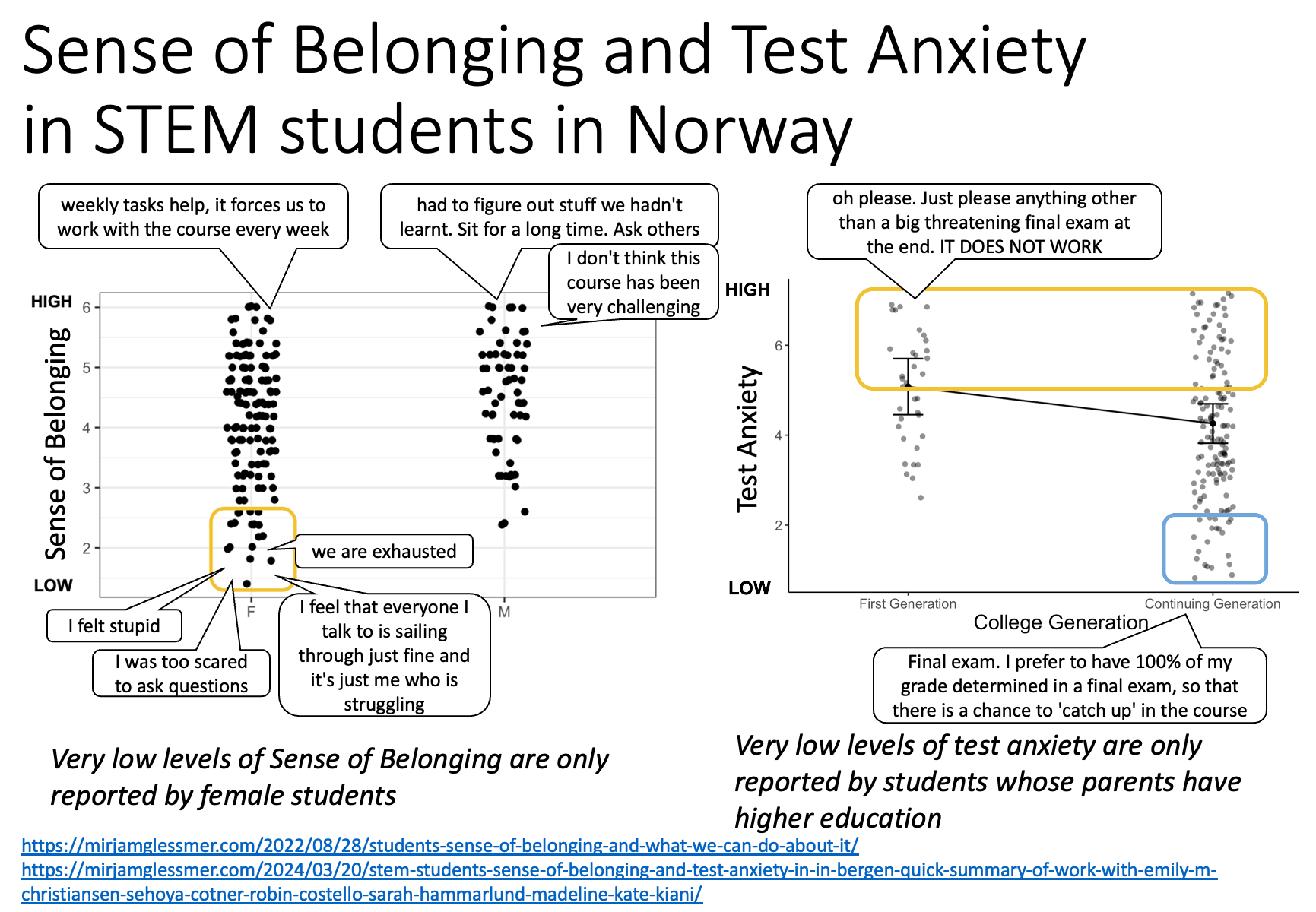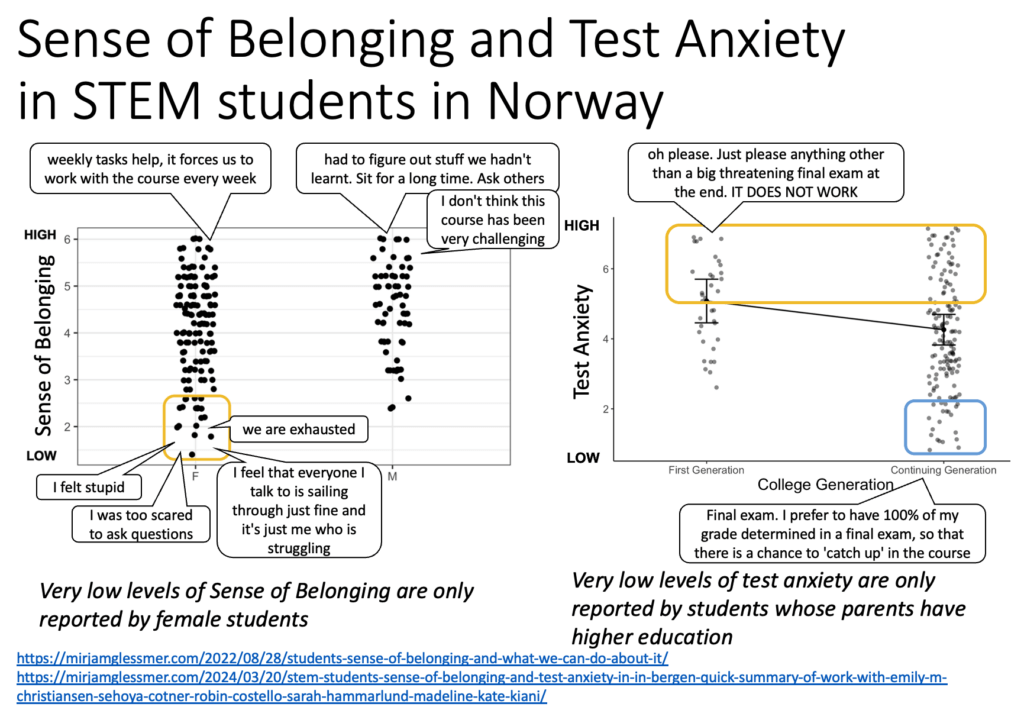
STEM students’ sense of belonging and test anxiety in in Bergen (quick summary of work with Emily M. Christiansen, Sehoya Cotner, Robin Costello, Sarah Hammarlund, & Madeline Kate Kiani)
In my series of things-I-want-to-say-in-an-upcoming-workshop-but-suspect-I-might-skip-to-make-time-for-participants’-topics, here is a quick summary of work I did with Emily M. Christiansen, Sehoya Cotner, Robin Costello, Sarah Hammarlund, & Madeline Kate Kiani on STEM students’ sense of belonging in Bergen a while back. The results are very interesting, mostly because they are very similar to what we have read about for years in a US context. However, this is the first time that this type of data has been collected in a Scandinavian context, where the assumption is traditionally that gender equality is so high that there shouldn’t be any differences between male and female students’ sense of belonging (yet we see there is), and where access to education is universal, so that it shouldn’t matter whether your parents have been to university or not (yet we see a correlation with test anxiety). Becoming aware of that is really important, so that we can figure out how to address it and level the playing field (some examples of what we could do are given here).
So here is our data: In summer 2022, we collected data on “student sense of belonging”, by asking students 5 questions (that they could respond to with 1 (not at all) to 6 (extremely)) about how comfortable or alienated, accepted or comfortable they feel in a course, and whether they feel that they “fit in” (and the “fitting in” aspect is problematic, as discussed here). Averaging these 5 responses, male students report “belonging” ranging from something like 2.5 to 6, with most of them around 5. For female students, the picture looks similar, except that there are additionally some responses that go down to just above 1. There is a whole cluster of female students with very low sense of belonging that does not exist on the male side.
We also asked an open question about the biggest challenges students face and how they have overcome them, and those very low-belonging women respond with things like “I felt stupid”, “I was too scared to ask questions”, “there has been constant stress and pressure, because there is always something that needs to be done”, “we are exhausted”, “I feel that everyone I talk to is sailing through just fine and it’s just me who is struggling”.
High belonging women, in contrast, say for example “weekly tasks help, it forces us to work with the course every week”, and high belonging men say for example “had to figure out stuff we hadn’t learnt. Sit for a long time. Ask others” or “I don’t think this course has been very challenging”. And interestingly, it is only high belonging students who do not answer this open question — possibly because they haven’t faced any challenges and hence didn’t have to overcome anything, either.
We also collected data on test anxiety and “college generation”, i.e. whether the student’s parents had been in higher education. Here, it turns out that medium and high levels of test anxiety exist in both first- and continuing generation students, but that very low levels of test anxiety only exist in students whose parents have higher education experiences. First generation, high test anxiety students say things like “oh please. Just please anything other than a big threatening final exam at the end. IT DOES NOT WORK”, or “more mandatory assignments … I find this way makes it easier to work evenly throughout the semester”. Also continuing generation, high test anxiety students say things like “1-3 mandatory assignments would have helped me settle better into the course … the pressure towards the exam causes me to not be able to show what I know”. And only continuing generation, low test anxiety students say things like “Final exam. I prefer to have 100% of my grade determined in a final exam, so that there is a chance to ‘catch up’ in the course”.
Typically this is more than one slide, but for the purpose of this in-a-nutshell summary I think it works ok…

My summary of a seminar about learning support for students with disabilities at LU - Adventures in Oceanography and Teaching says:
[…] on all the relevant variables, so designing for the average means designing for nobody! And also our work on test anxiety where we find that first generation higher education students do not experience similarly low […]
Planning a seminar on relationships in the classroom - Adventures in Oceanography and Teaching says:
[…] …our “belonging” data from Bergen, […]